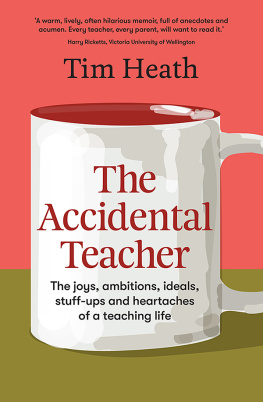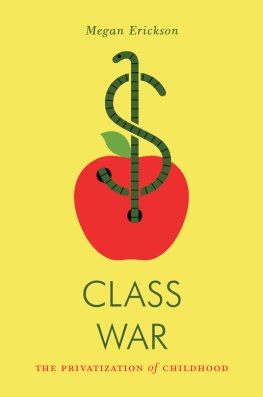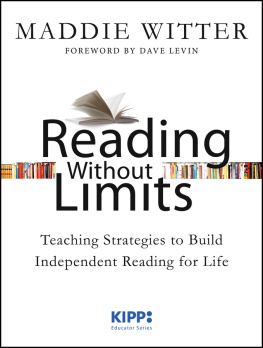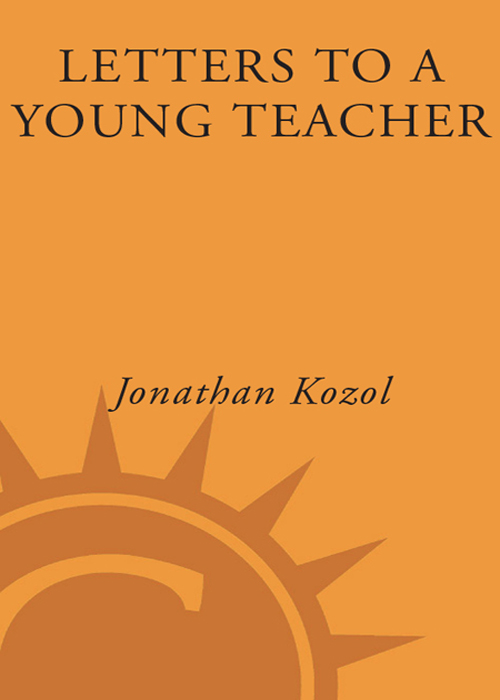
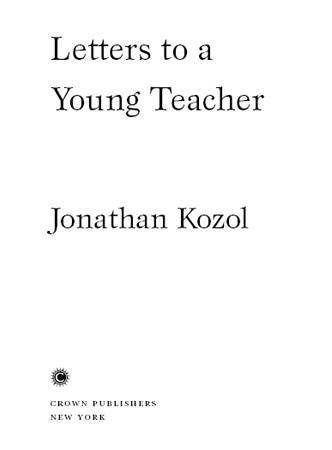
CONTENTS
CHAPTER ONE
A Life Among Schoolchildren
CHAPTER TWO
Establishing the Chemistry
CHAPTER THREE
Reaching Out to Get to Know the Parents of Our Children
CHAPTER FOUR
Teaching the Young, but Learning from the Old
CHAPTER FIVE
Wild Flowers
CHAPTER SIX
The Little Piper
CHAPTER SEVEN
The Uses of Diversity
CHAPTER EIGHT
Beware the Jargon Factory
CHAPTER NINE
Aesthetic Merriment
CHAPTER TEN
High-Stakes Tests and Other Modern Miseries
CHAPTER ELEVEN
The Single Worst, Most Dangerous Idea
CHAPTER TWELVE
It Is Evil to Tell Lies to Children
CHAPTER THIRTEEN
Loss of Innocence
CHAPTER FOURTEEN
Teachers as Witnesses
CHAPTER FIFTEEN
Seeds of Hope, Sources of Resilience
EPILOGUE
Goodbye for Now
APPENDIX I
Recipe for Green Slime
APPENDIX II
Leads and Contacts
For Francesca
and for all those other
teachers, young in age
or young at heart, who
come into our classrooms
with a love for children and
a thirst for justice
TO THE READER
The letters in this little book were written to a first grade teacher I will call Francesca who, after she had taken a position at an inner-city school in Boston, soon began to write to me, as many teachers do, and invited me to visit in her classroom.
In order to include some of the issues raised by other teachers in whose classes I have visited or who have written to me on a friendly impulse, as Francesca did, I have expanded the scenario from time to time by incorporating some of their experience into my portrayal of Francesca. I have also disguised a number of the details of Francescas situation, including certain biographical matters and time factors that might otherwise invade her privacy in ways that I believe would be unfair to her.
Francesca, however, is a very real and wonderful young person who is also an astute observer of the politics of education and who, in her conversations and her correspondence with me, proved to be a shrewd, sometimes irreverent, and persistent questioner. Some of her questions forced me to reach back into my own career and to unearth almost forgotten memories. On occasion, this has led me to restate an incident or conversation from one of the other books Ive written about children in the course of 40 years. Id like to thank Francesca for impelling me to share these memories with her, even when they sometimes painfully remind me of mistakes Ive made, either in the classroom as a teacher or, in later years, in efforts to resist a public policy or practice I thought damaging to students.
Most of all, I want to thank her for the favor she has given me in making me feel welcome in her class andby her willingness to speak with candor of the challenges shes facedbringing me so very close to the immediate and day-by-day concerns of those who, like herself, have chosen to devote their lively spirits and their deepest ethical ideals to the education of our children.
Byfield, Massachusetts, April 2007
CHAPTER ONE
A Life Among Schoolchildren
Dear Francesca,
I was very happy that you wrote to me and I apologize for taking two weeks to reply. I was visiting schools in other cities in the first part of the month and I didnt have a chance to read your letter carefully until tonight.
The answer to your question is that I would love to come and visit in your classroom and Im glad that you invited me. Id also like to reassure you that you didnt need to worry that Id think your letter was presumptuous. I like to hear from teachers and, as you have probably suspected, I feel very close to quite a few of them, especially the ones who work with little children in the elementary grades, because those are the grades I used to teach. I think that teaching is a beautiful profession and that teachers of young children do one of the best things that there is to do in life: bring joy and beauty, mystery and mischievous delight into the hearts of little people in their years of greatest curiosity.
Sometimes when Im visiting a school, a teacher whom I may have met once when she was in college, or with whom I may have corresponded briefly, or a teacher whom Ive never met but whos read one of my books and feels as if she knows me, sees me standing in the corridor and comes right up and tells me, Come and visit in my classroom! Sometimes she doesnt give me any choice. She simply grabs me by the arm and brings me to the classroom. Then, when I get there, typically she puts me on the spot and asks if I would like to teach a lesson or ask questions to her children.
I love it when teachers let me do this, but I almost always do it wrong at first, because its been a long time since I was a teacher, and I often ask the kind of question that gets everybody jumping from their seats and speaking out at the same time. Six-year-olds, when they become excited, as you put it in your letter, have only a theoretical connection with their chairs. They do the most remarkable gymnastics to be sure you see them. A little girl sitting right in front of me will wave her fingers in my face, climbing halfway out of her chair, as if shes going to poke me in the eyes if I wont call on her, and making the most heartrending soundsOoooh! Ooooh! Ooooh! Ooooh!in case I still dont notice that shes there. Then, when I finally call on her, more often than not she forgets the question that I asked, looks up at me in sweet bewilderment, and asks me, What? It turns out she didnt have a thing to say. She just wanted me to recognize that she was there.
The teacher usually has to bail me out. She folds her arms and gives the class one of those looks that certain teachers do so well, and suddenly decorum is restored.
Its a humbling experience, but I think that its a good one too, for someone who writes books on education to come back into the classroom and stand up there as the teacher does day after day and be reminded in this way of what its like to do the real work of a teacher. I sometimes think that every education writer, every would-be education expert, and every politician who pontificates, as many do so condescendingly, about the failings of the teachers in the front lines of our nations public schools ought to be obliged to come into a classroom once a year and teach the class, not just for an hour with the TV cameras watching but for an entire day, and find out what its like. It might at least impart some moderation to the disrespectful tone with which so many politicians speak of teachers.
In my writings through the course of nearly 40 years, I have always tried to bring the mighty and ferocious educational debates that dominate the pages of the press and academic publications, in which the voices of our teachers are too seldom heard, back from the distant kingdom of intimidation and abstractionlists of mandates, sanctions, and incentives and performance standards and the restinto the smaller, more specific world of colored crayons, chalk erasers, pencil sharpeners, and tiny quarrels, sometimes tears and sometimes uncontrollably contagious jubilation of which daily life for a real teacher and her students is, in fact, composed.
Im often disappointed, when I visit some of the allegedly sophisticated schools of education, to recognize how very little of the magic and the incandescent chemistry that forms between a truly gifted teacher and her children is conveyed to those who are about to come into our classrooms. Many of these schools of education have been taken over, to a troubling degree, by people who have little knowledge of the classroom but are the technicians of a dry and mechanistic, often business-driven version of proficiency and productivity. State accountability requirements, correlated closely with the needs and wishes of the corporate community, increasingly control the ethos and the aims of education that are offered to the students at some of these schools.
Next page

